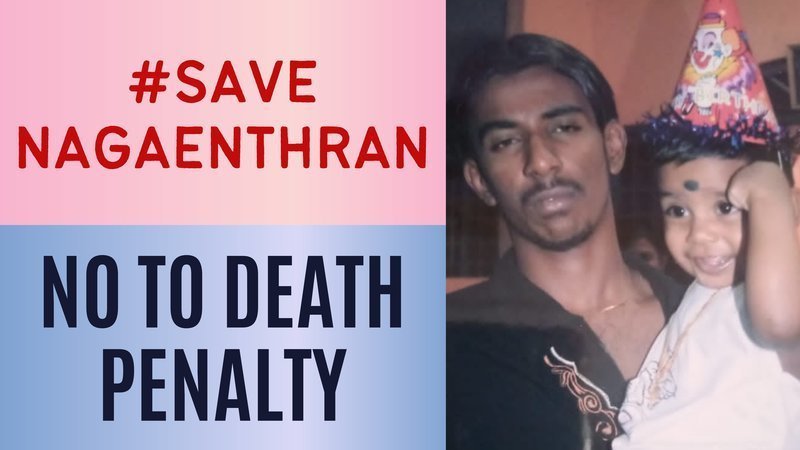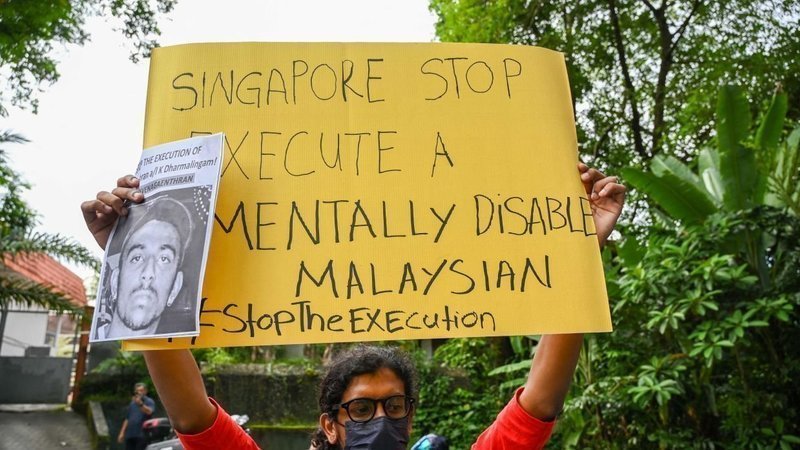
Amnesty International has called on the Singaporean government to cease the planned execution of Tamil Malaysian national, Nagaenthran K Dharmalingam who has been charged with carrying drugs in 2009.
The execution which is scheduled to take place on 10 November has drawn criticism from numerous human rights organisations.
Rachel Chhoa-Howard, Amnesty International’s Singapore Researcher, said:
“There is still time for Singapore to change course and stop this unlawful execution from taking place. Taking people’s lives is a cruel act, but to hang a person convicted merely of carrying drugs, amid chilling testimony that he might not even fully understand what is happening to him, is despicable.

In 2010 Dharamalingham was convicted and sentenced to death for carrying 42.72 grams of heroin onto the island. Following his conviction, he was assessed by medical experts in 2010 in which he was found to have "borderline functioning intelligence and concurrent cognitive deficits". Those experts noted that his cognitive deficits "may have contributed toward his misdirected loyalty and poor assessment of the risks in agreeing to carry out the offence”. Death penalty opponents say Nagaenthran's IQ was disclosed during the trial as 69, a level that is internationally recognized as an intellectual disability. They say he was also found to have attention deficit hyperactivity disorder and a drinking disorder that together could affect his judgment, decision making and impulse control.
In 2015 he requested that he be sentenced to life imprisonment and despite qualifying as a "courier", a person limited to only the transportation of drugs, the prosecutor dismissed the appeal in 2017. A petition calling on President Halimah Yacob to pardon Nagenthran has garnered over 60,000 signatures. The petition notes that "The execution of a mentally ill person is prohibited under international human rights law, as well as under the United Nations Convention on the Rights of Persons with Disabilities (UNCRPD). Furthermore, any execution for drug offences contravenes international law and standards. As a signatory of the UNCRPD, the Singapore government runs the risk of violating its obligation towards “ensuring that persons with disabilities are treated equally with dignity and respect”.
Family members of Nagenthran, who live in Malaysia have not been able to visit him in prison for over two years due to COVID-19 restrictions. They were notified of his planned execution by a letter dated 26 October. Family members have struggled to visit the prison due to the added financial and logistical challenges posed by the quarantine process and the pandemic, they were notified that only up to 5 members would be allowed to travel and visit the prison, which has caused great distress.
Read more at Amnesty.

